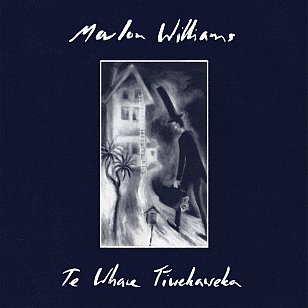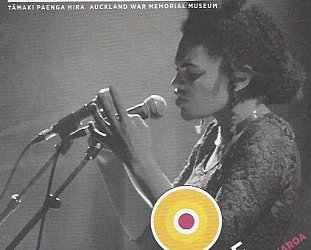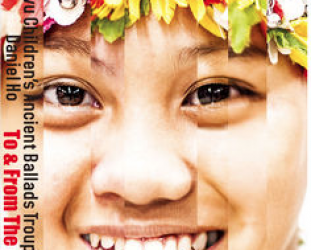Graham Reid | | 2 min read
Kōrero Māori

From time to time Elsewhere will single out a recent release we recommend on vinyl, like this one which comes in a gatefold sleeve with the te reo lyrics and credits.
Check out Elsewhere's other Recommended Record picks . . .
.
In June 2021, the soul singer Teeks appeared in concert at Auckland's Civic Theatre before a large and appreciative audience.
It was a significant event beyond being a concert.
Here was a young, bilingual gay Māori man singing to a broad cross-section of mainstream Kiwis and, as I noted in a review, the enthusiastic response her got was emblematic of how far we've come and encouraging in that we were going in the right direction.
For a while now we've spoken of the kōhanga reo generations coming of age and – ask anyone who has been out of the country for a decade – te reo has become so widespread it has distinguished and enriched us in ways we probably don't even realise.
We are becoming bilingual by increasingly large increments and the better for it.
In popular music we have a top 10 chart for songs in te reo, not as a separatist or DEI gesture but to simply acknowledge just how much there is of it now.
That the much acclaimed, award-winning Marlon Williams (Ngāi Tahu, Ngāi Tai) should present this, his fourth album, in te reo is unsurprising.
Nor is it surprising that it immediately topped the local charts against internationals like Sabrina Carpenter, Elton John with Brandi Carlile and Black Country New Road.
What does surprise is just how beautiful it is as he charts a personal and cultural journey from the a cappella opener E Mawehe ana Au (“I am split between two worlds. Sitting here, looking there”), the uplifting Kei te Mārama (“I’ve taken all my things. The keys are on the table. I’m off to study history. I understand”) and the glorious early single Aua Atu Ra (“I won’t be coming back to you . . . I am alone in this boat on the ocean”).
These original waiata, with lyrics by Williams and Kommi Tamati-Elliffe, present music rooted in Māori concert parties, choral groups (Me Uaua kē), haka and the trickle-down of Dalvanius' vision of Maori pop (Kōrero Māori). There are country music influences (the deep spirituality of Whakameatia Mai), a piano ballad Ngā Ara Aroha and the lament Kāhore He Manu E with Lorde, all wrapped up by Williams' honey-smooth voice (the love song Ko Tena Uaand Pōkaia rā te Marama with lyrics by Julian Wilcox) or like a soul unleashed (on the surging, anthemic rock of Kuru Pounamu).
And there's pointed humour too: “You’ve travelled all around impressing people, gee whizz! Akaroa, Wairewa, Waihora, Paris even, my dear? I've seen a map of the world and I see you before me now. Māori you left, and Māori you returned”.
The wairua is strong with this one.
.
You can hear and buy this album at bandcamp here





post a comment